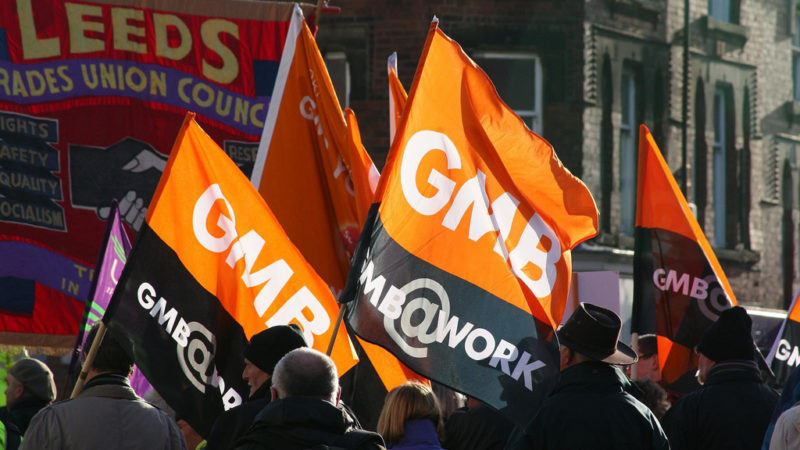
Gary Smith has criticised Labour’s handling of the “row” over picket lines during the strikes over the summer but argued that the party has set out a “very radical programme”, including on workers’ rights and trade union rights.
Speaking at a Labour in Communications event today, the GMB general secretary said Labour had managed to “turn Tory chaos into a Labour Party story” with its decision to ban frontbenchers from joining picket lines.
A message was reportedly circulated by the leader of the opposition’s office in June telling frontbenchers that they “should not be on picket lines” ahead of a series of strikes by members of the RMT.
Smith told event attendees: “In terms of… Keir [Starmer] and Rachel [Reeves], I don’t tell them how to do the job. Because I know if they phoned me to tell me how to run the GMB, it’d be a very short and industrial conversation.” He added: “It’s the public who mark their report card, not me, they will be the judge at the end of the day.”
On the ongoing wave of industrial action across the country, he said: “There’ll be ups and downs on the way, but I have so much optimism and I see so much positive energy around the trade union movement.”
“I see so much passion, and I see so much anger. I see the hurt in workplaces, but for the first time in a long time, I see people saying we’ve had enough,” Smith added.
The union leader argued that “this is such a moment for Labour”, telling attendees: “Labour has actually got a very radical programme. I think if you look at the Stronger Together stuff that we have done, that went through the party conference, that is really radical on workers’ rights and trade union rights.”
Smith highlighted the Shadow Chancellor’s announcement at conference that Labour in government would set up a national economic council to bring together representatives from government, industry and the unions, in order to put working people and businesses “at the heart of economic decision-making”.
“We have an economy which is fundamentally dysfunctional on so many levels. Imagine us coming together to work on a different type of future,” he said.
Smith said the GMB will “lobby” and “put pressure on” Labour, adding: “We’ve got an enduring relationship. We want to build something better and stronger. And we go into everything with positive intent, but always members first.”
The general secretary argued that the Copeland by-election in 2017 – which saw the Tories gain a seat that had been dominated by Labour since 1924 – should have been the “canary in the mine” for Jeremy Corbyn’s leadership of the party.
“The most unionised constituency anywhere in the country, and they voted Tory. Why? Because it’s a nuclear community. And that community perceived that the party was against the nuclear industry,” Smith said.
“Barrow and Furness, voting Tory. One in three of the working age population builds nuclear submarines. If you’re against their industry, guess what, they ain’t going to be voting for you,” he added.
On the current energy crisis facing the UK, Smith said: “At some point in the next few years, the lights are more likely to go out. We’re going to lose one coal-fired power station between now and next spring. It’s hardly working anyway, but it will be off, and we will lose every nuclear power station bar one by 2030.
“Where are we getting the power from? And if anybody thinks it’s 100% renewables and all this green stuff – and some people in the party think that – I am sorry, they are utterly deluded. It just doesn’t work like that.”
Today’s event was hosted by Labour in Communications, as part of a series of interviews with trade union leaders. On Wednesday, the group will be speaking with incoming TUC general secretary Paul Nowak.
Later this month, they will host interviews with NASUWT general secretary Patrick Roach and UNISON general secretary Christina McAnea.




More from LabourList
Nudification apps facilitate digital sexual assault – and they should be banned
Diane Abbott suspended from Labour after defending racism comments
Labour campaign groups join forces to call for reinstatement of MPs